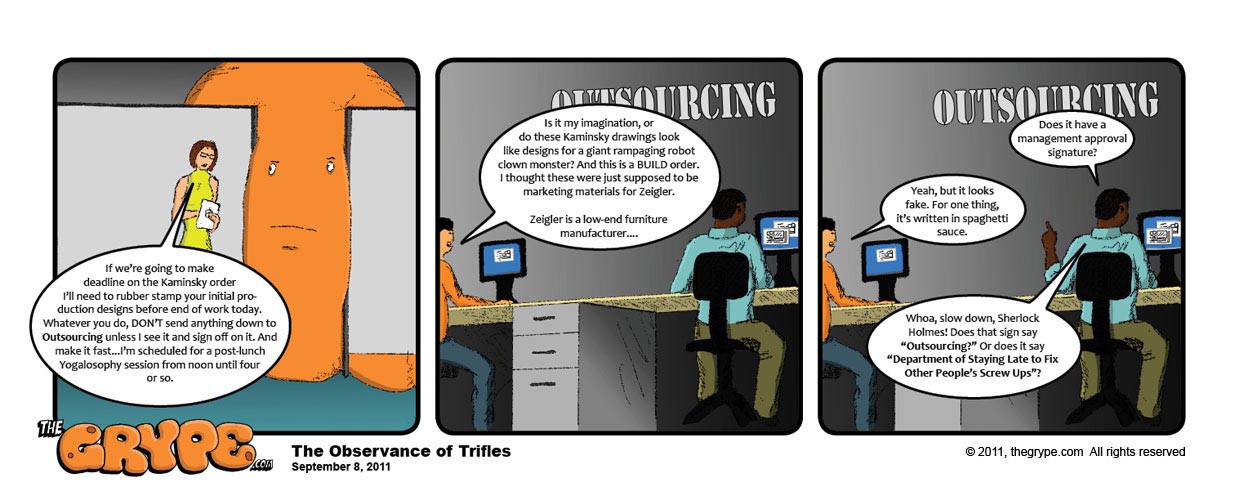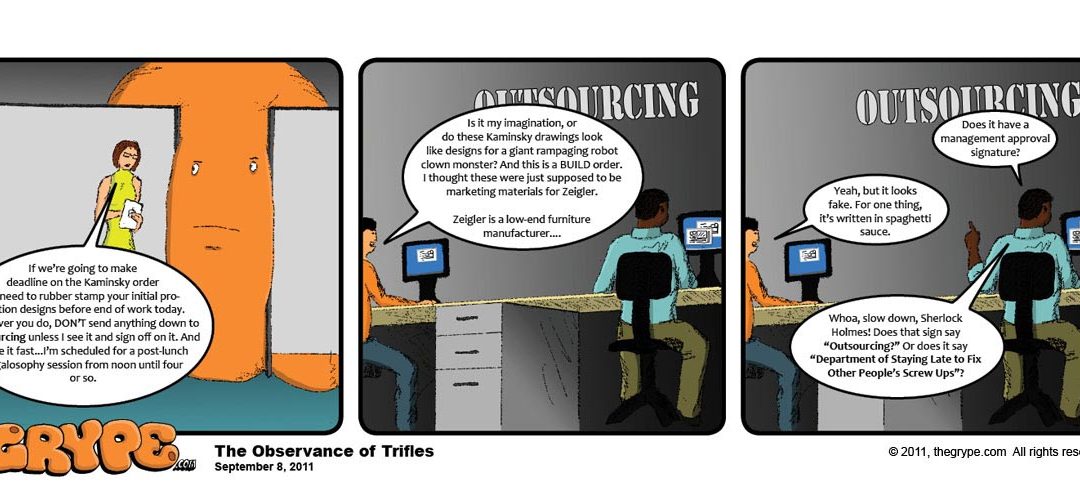 There is an old joke that goes like this:
There is an old joke that goes like this:
Question: Which is worse? Ignorance, apathy, or indecision?
Answer: I don’t know and I don’t care one way or another.
Sure, it’s a clever play on words and is pretty funny… as a JOKE. But in any real work environment, those three factors— ignorance, apathy, and indecision— are a deadly combination. When employees are being paid to solve problems (or— even more efficient and cost-effective—prevent them from ever happening)— but still they cannot be bothered to pay attention to the warning signs that something is amiss— bad things happen. If they deny that the end results are really their fault anyway, the final knot is fixed and the noose pulls tight. What remains is an expanding sinkhole of inefficiency, into which are dumped the ruined remnants of the best laid plans of mice and men, and within which vital elements of the production process are repeatedly sidetracked or completely derailed. New problems pile up like abandoned boxcars as the mess grows. Or, as humorously depicted in the hilarious candy factory sketch in a classic episode of I Love Lucy, the candy starts to fall off the end of the conveyor belt and pile up on the floor, eventually bringing production to a standstill.
Now… if they are responsible and dependable employees, the engineers of such a debacle might quickly own up to their errors and put a stop to the situation before it gets worse; but sadly, few do. Most go right on pretending nothing is wrong or pushing the blame off onto the shoulders of others until the whole thing blows up in everybody’s face. Or they are too afraid to speak up and keep running around like Jackie Gleason in a cake factory impossibly trying to put all the cakes in boxes and failing miserably, resulting in a pile of ruined cakes and utter chaos. Hilarious chaos, when enacted by a comic genius like Gleason… but still the ultimate bane of any business environment: SYSTEM FAILURE.
Yet such a dreadful fate can often be avoided if those charged with managing the system simply pay attention and perform their job duties responsibly. The worst disaster often begins with a seemingly innocuous series of small anomalies that slip undetected past the notice of all but the most vigilant watchers. A dam will usually spring a series of small leaks before it breaks; a bridge sways or trembles before it collapses. By paying attention to such small evidence of imminent failure, an observant watcher might completely avert an otherwise horrendous disaster.
This is not a new concept. The famous 19th century literary detective Sherlock Holmes explained his legendary problem-solving success to his assistant Watson thusly:
“You know my method. It is founded upon the observance of trifles.”
—Sherlock Holmes, in “The Boscombe Valley Mystery” by A. Conan Doyle
The phrase “observance of trifles” can be otherwise stated as “paying attention to small details.” When an employee does so and devotes himself to recognizing the significance of various warning signs when they manifest, and—still more importantly!—when that employee cares enough to invest himself in the process by TAKING CORRECTIVE ACTION in response to such danger signals when they appear—then the system can function as intended, to the benefit of all involved. And not just in a business setting, but in every aspect of daily life.
You don’t have to be Sherlock Holmes to figure that one out.

